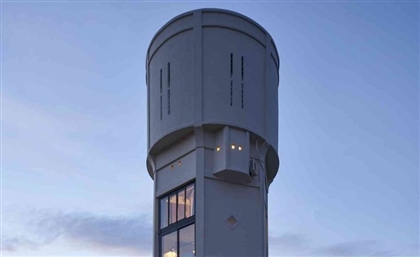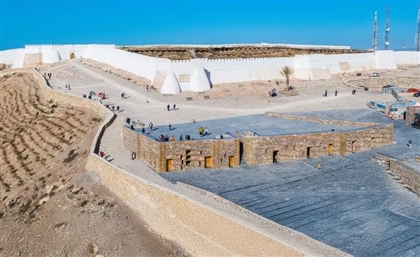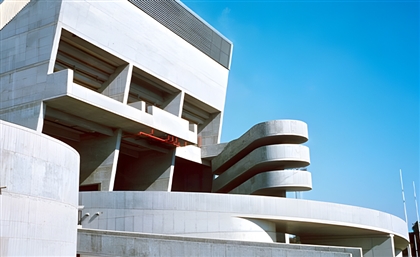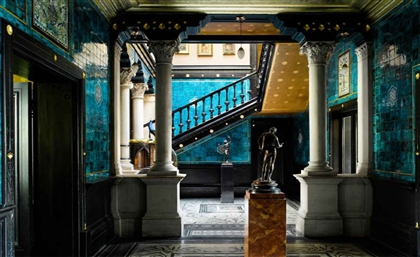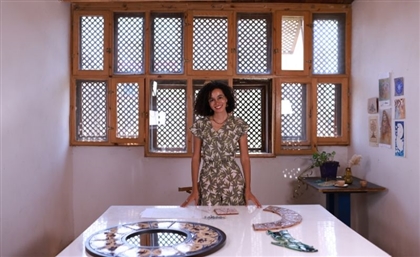Wafra Living: A Socially-Driven Housing Solution in Kuwait
Award-winning studio AGi Architects create an ingenious living environment as a response to housing needs.
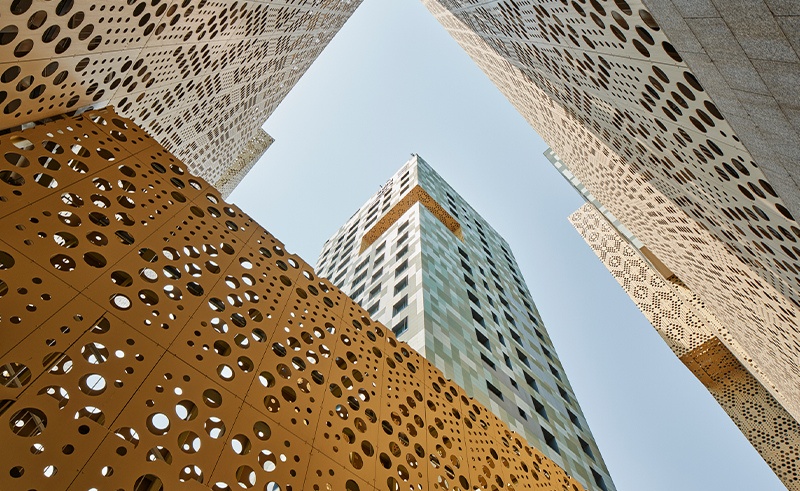
Designed as a social response to housing needs in Kuwait, Wafra Living is a multi-award-winning housing project created by AGi Architects, an award-winning architecture practice founded by fellow Harvard graduates Nasser B. Abulhasan and Joaquín Perez-Goicoechea with offices in Madrid and Kuwait.
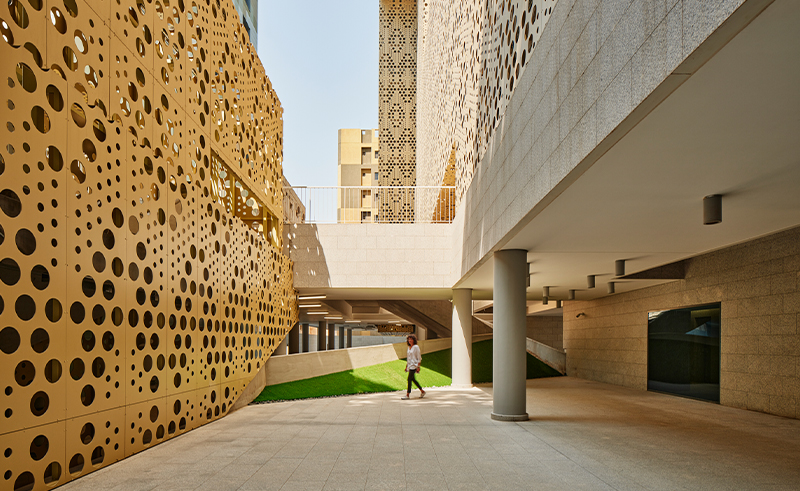 Wafra Living’s design proposes an innovative housing organisation guided by contemporary life while balancing traditional norms, and reintroducing urban life to the building level. Set back from the street, the high-rise building has an L-shape that defines the street edge.
Wafra Living’s design proposes an innovative housing organisation guided by contemporary life while balancing traditional norms, and reintroducing urban life to the building level. Set back from the street, the high-rise building has an L-shape that defines the street edge.
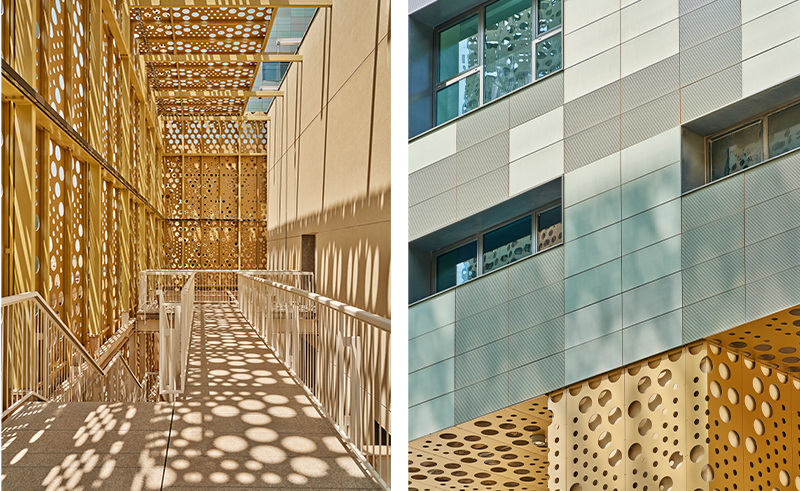 It was conceived to maximise privacy within the community, whilst providing ample natural light and usable indoor and outdoor common spaces,” Abulhasan tells SceneHome. “Cuts were made on the ground floors of the front building to provide better views for the tower apartments.”
It was conceived to maximise privacy within the community, whilst providing ample natural light and usable indoor and outdoor common spaces,” Abulhasan tells SceneHome. “Cuts were made on the ground floors of the front building to provide better views for the tower apartments.”
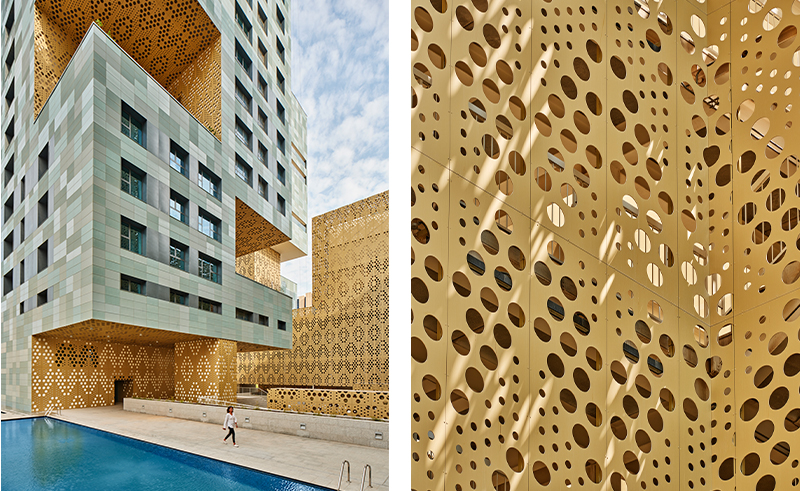 The complex combines at different levels domestic and collective scales that are both private and public. “The architecture defines the edge of the block and creates a series of open spaces within the plot for the community,” Abulhasan adds. “The building cantilevers off the ground to draw street life into the building.”
The complex combines at different levels domestic and collective scales that are both private and public. “The architecture defines the edge of the block and creates a series of open spaces within the plot for the community,” Abulhasan adds. “The building cantilevers off the ground to draw street life into the building.”
“The ground floor opens up to the neighbourhood with accessible retail facilities on the street level, integrating into the urban fabric, and links up to a high square through an inclined, stepped garden,” he continues.
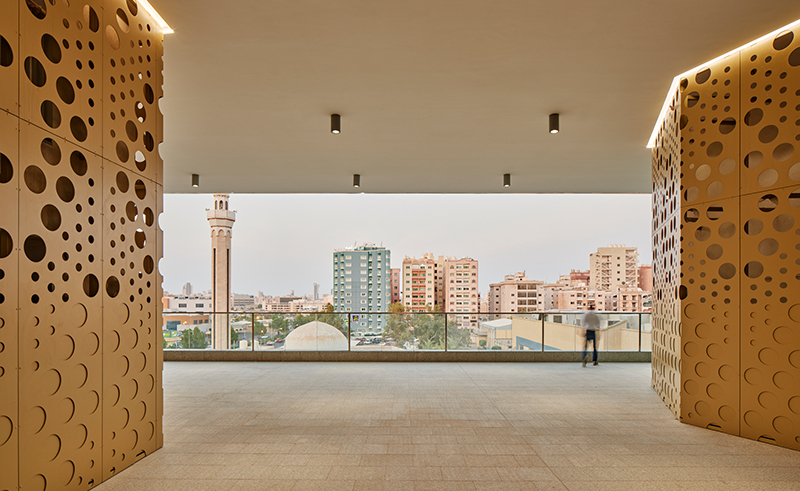 Wafra Living is composed of 16 types of living typologies - ranging from two bedroom to four bedroom duplex - distributed across five cores to cater to a variety of tenants. The project’s public amenities include multiple gardens, gyms, pools, kids playing areas, squash court, public terraces and a community multi-purpose space.
Wafra Living is composed of 16 types of living typologies - ranging from two bedroom to four bedroom duplex - distributed across five cores to cater to a variety of tenants. The project’s public amenities include multiple gardens, gyms, pools, kids playing areas, squash court, public terraces and a community multi-purpose space.
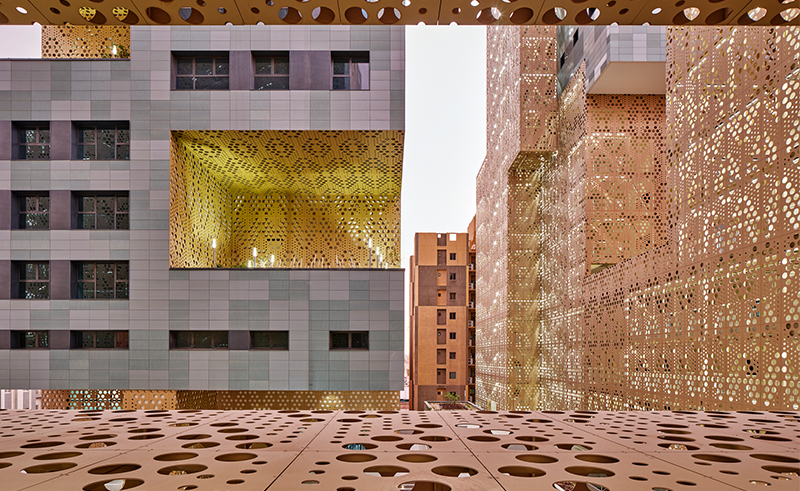 A ‘High Square’ acts as a large-scale, private communal area for all the tenants that includes various landscaped pockets, pools, and access to the gym to enjoy leisure activities in a more private setting.
A ‘High Square’ acts as a large-scale, private communal area for all the tenants that includes various landscaped pockets, pools, and access to the gym to enjoy leisure activities in a more private setting.
“The building envelope provides a safe environment for the inhabitants, protecting them from the hustle and bustle of the street,” Perez-Goioechea says. “From this level, you can see an aluminium mesh: a double skin that climbs the internal facade containing the emergency routes, and cancels the various service spaces that don’t relate to the public.” Here, he refers to the five cores connecting the residential floors hiding behind the lattice.
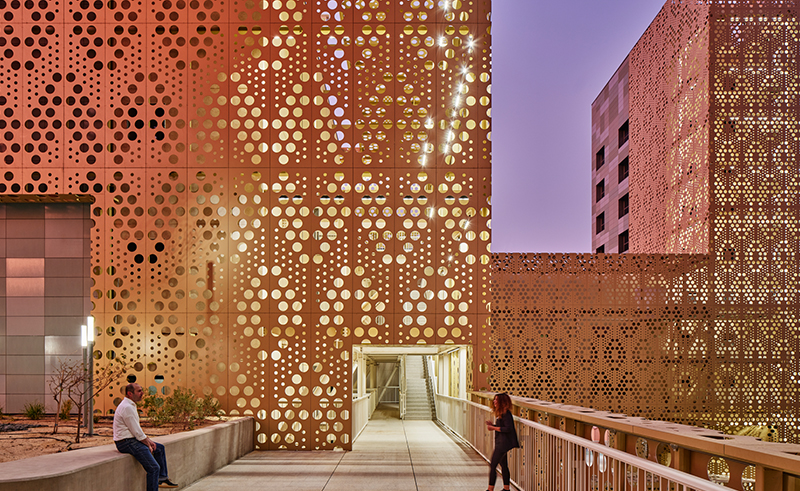 Passive design techniques and innovative materials were used to maximise thermal insulation and minimise light consumption, also enhancing ventilation of the building, avoiding the ‘heat-island’ effect that usually occurs in similar urban developments.
Passive design techniques and innovative materials were used to maximise thermal insulation and minimise light consumption, also enhancing ventilation of the building, avoiding the ‘heat-island’ effect that usually occurs in similar urban developments.
“Lately, we’ve taken a renewed interest in typologies that have a communal and public space and how crucial it is to our well-being as a society,” Perez-Goioechea explains. “Wafra Living is socially driven, environmentally responsive and behaviour-conscious.”
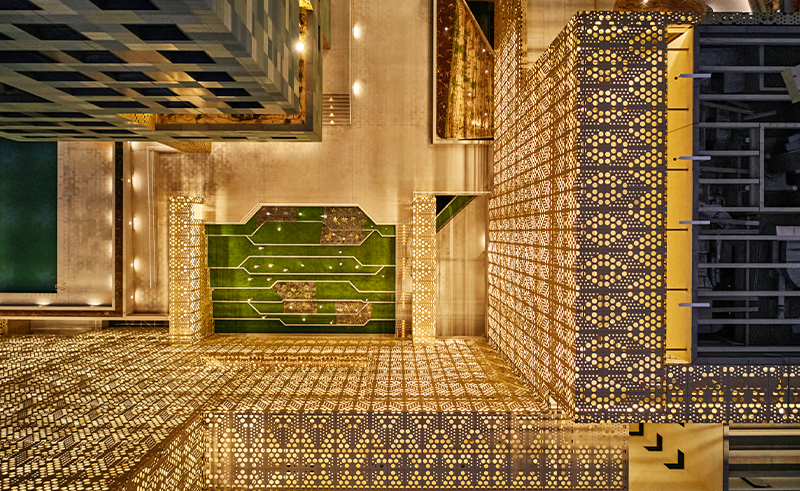 Since its first unveiling in 2021, Wafra Living continues to set the example of how to approach urban issues and redefine areas; how buildings can become a catalyst for a city’s growth.
Since its first unveiling in 2021, Wafra Living continues to set the example of how to approach urban issues and redefine areas; how buildings can become a catalyst for a city’s growth.
Photography Credit: Mohammed Taqi Ashkanani
- Previous Article The Enduring Charm of Jeddah’s Old Town of Al Balad
- Next Article This Swiss-Egyptian Photographer Views Europe Through Mosque Windows
Trending This Month
-
Jan 31, 2026




